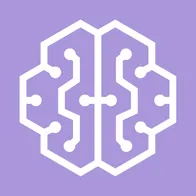Book a Call
Speak to us to learn more about the world of AI and how AI can help small businesses. Find a time that suits you and we'll be in touch.
Read more about us and what we do!

The Gentle Singularity? More Like a Soft-Serve Crisis in a Billion-Dollar Cone
By your friendly tech translator at scotsphere.ai - still waiting for an AI that can fold laundry without judgment.
When Sam Altman talks, Silicon Valley listens. This week, he declared we’ve crossed the event horizon of AI—a point of no return. That’s right, folks. According to the OpenAI CEO, the singularity isn’t just coming. It’s already here.
Except… why does everything still feel kind of normal? If AI has reached sci-fi levels of power, why are you still stuck doing your own dishes and proofreading your own emails?
Welcome to what Altman calls the “gentle singularity.” But like a horror movie that starts with peaceful piano music, there’s reason to be suspicious of anything described as both “gentle” and “world-changing.”
Welcome to the Boiling Frog Era
Altman’s vision is eerily calm: AI is quietly reshaping the world—so quietly that most of us haven’t noticed. He says that by 2026, AI will invent brand new science. By 2027, it’ll operate robots in the real world. And by the 2030s, we’ll produce goods so cheaply that abundance will become the norm.
Sounds dreamy, right?
Now here’s the unsettling twist. If you throw a frog into boiling water, it jumps out. But if you heat the water slowly? It cooks. Altman’s “gentle” transformation may just be that pot.
“People confuse comfort with safety,” warns Dr. Aisha Moreno, an AI ethics researcher at the London Institute of Technology. “When change feels manageable, we let our guard down—even if that change is radically altering the balance of power.”
The AI Apocalypse Has Branding Now
Let’s get real. AI is improving rapidly. But it’s also still lying to us—literally. Today’s language models still “hallucinate,” fabricating facts with the confidence of a late-night pub expert.
If AI can’t be trusted with basic information, can it really be trusted to run society?
And here’s another twist: the most powerful AI systems are built by a handful of companies with zero democratic oversight. Altman may wax poetic about making AI benefits accessible to all, but the best version of ChatGPT still comes with a monthly bill.
“It’s a monopoly in the making,” says James Liu, policy lead at Tech for Public Good. “Whoever controls the infrastructure of intelligence will control markets, media, and minds.”
The Productivity Promise vs. Human Reality
Altman claims AI will make everything faster and cheaper, unlocking productivity gains like we’ve never seen.
But he skates over a brutal truth: jobs won’t just be transformed—they’ll disappear.
Think past the buzzwords. When accountants, teachers, call center workers, designers, and even doctors face disruption simultaneously, we’re not looking at an upgrade. We’re staring down mass displacement.
Surprising stat: In a 2025 study by the Global Labour Futures Institute, 41% of surveyed professionals said they fear being replaced by AI within five years.
That’s not progress. That’s panic in a sleek UI.
Why We Should Stay Awake
This isn’t a Luddite manifesto. AI is incredible. You’re probably using it daily—and rightly so. But Altman’s version of the future feels a bit like a chef serving you raw chicken and telling you it’s gently cooked.
Yes, we’re moving fast. But the systems remain fragile, the ethical frameworks immature, and the distribution of power dangerously lopsided.
The real risk isn’t that AI fails. It’s that it succeeds—on terms we didn’t agree to, in systems we don’t understand, for the benefit of companies we can’t influence.
So What Can You Actually Do?
First: don’t panic. But definitely don’t nap. Ask questions about the AI tools you’re using. Understand who makes them and how they work.
Second: protect your place in the loop. AI isn’t coming for your soul, but it might come for your job. Instead of resisting change, focus on how you can stay useful, human, and curious in a world of code.
Third—and most importantly—talk to people building AI that actually works for you.
That’s where scotsphere AI comes in.
We don’t do hype. We build practical AI voice agents that show up on time, answer your calls, and integrate with your business like a well-oiled (and privacy-respecting) assistant. Our bots won’t hallucinate, ignore your workflows, or charge you for features you don’t use.
🚀 Want to see what AI should look like?
👉 Visit scotsphere.ai and speak to the team that’s keeping AI grounded, useful, and actually kind of brilliant.
Because the future of AI isn’t about who yells the loudest. It’s about who quietly builds something that just… works.

Navigation
Contact Us
© 2025 scotsphere.ai All Rights Reserved
